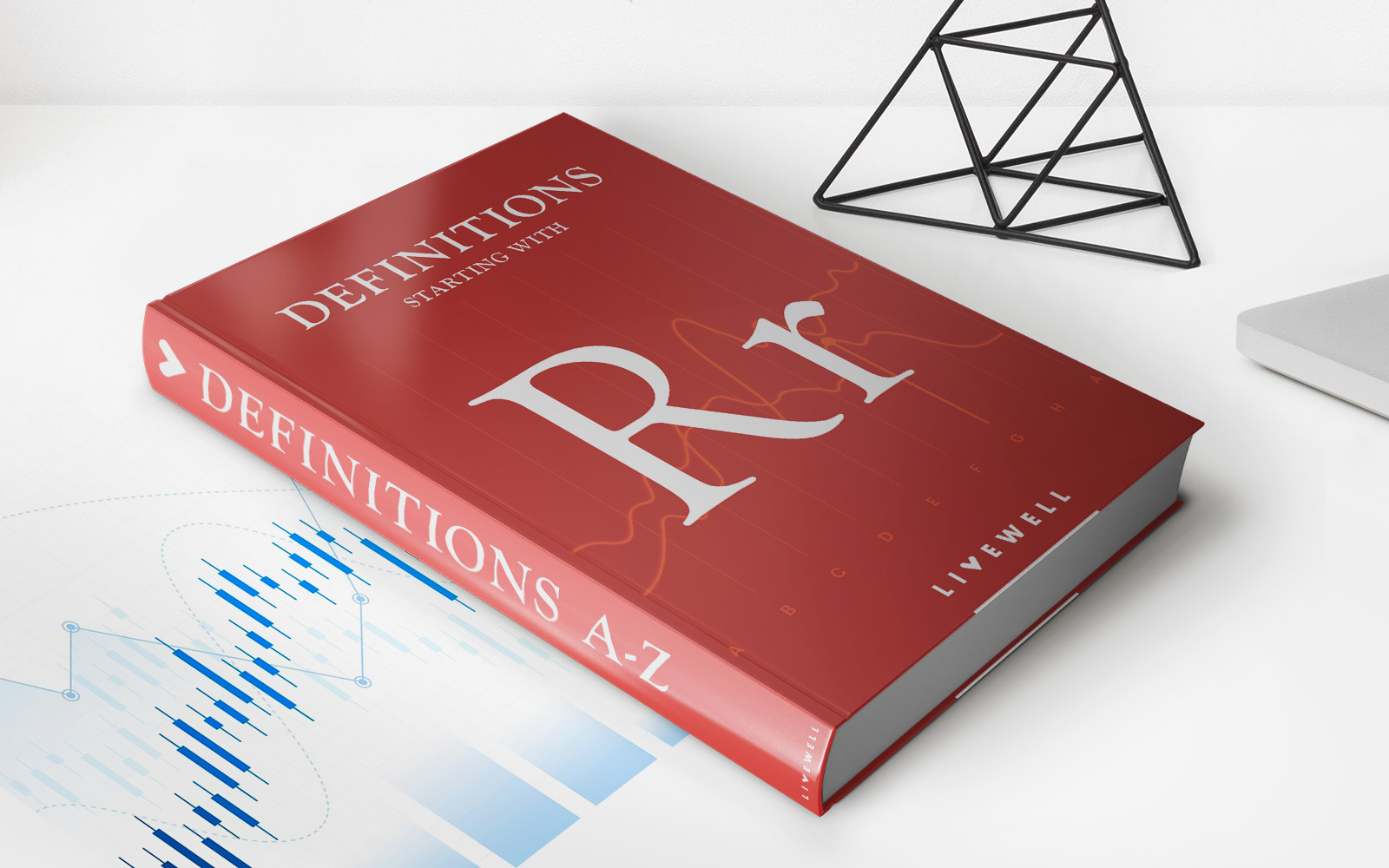

Finance
What Does An Accounting Assistant Do
Modified: February 21, 2024
Learn the key responsibilities and tasks of a Finance Accounting Assistant, from managing financial records to supporting financial analysis and reporting.
(Many of the links in this article redirect to a specific reviewed product. Your purchase of these products through affiliate links helps to generate commission for LiveWell, at no extra cost. Learn more)
Table of Contents
- Introduction
- Responsibilities of an Accounting Assistant
- Daily Tasks
- Assisting with Financial Reports
- Managing Accounts Payable and Accounts Receivable
- Reconciling Bank Statements
- Assisting with Payroll Processing
- Maintaining Financial Records and Filing Documents
- Assisting with Audits and Tax Preparation
- Collaborating with Other Departments
- Required Skills and Qualifications
- Conclusion
Introduction
Accounting assistants play a vital role in keeping financial records accurate and organized in a business or organization. They provide support to the accounting department and assist in various tasks, ensuring the smooth operation of financial processes. Their work is crucial for maintaining financial stability and ensuring compliance with regulatory standards.
The responsibilities of an accounting assistant can vary depending on the size and nature of the company they work for. In smaller organizations, they might handle a wide range of accounting tasks, while in larger companies, they may specialize in specific areas such as accounts payable or payroll processing. Regardless of the specific role, accounting assistants are essential in maintaining the financial health of an organization and supporting the overall financial management system.
In this article, we will explore the key responsibilities and daily tasks of an accounting assistant. We will delve into their role in assisting with financial reports, managing accounts payable and accounts receivable, reconciling bank statements, assisting with payroll processing, maintaining financial records, assisting with audits and tax preparation, and collaborating with other departments. Additionally, we will highlight the necessary skills and qualifications required to succeed in this role.
Whether you are considering a career in finance or simply want to gain a better understanding of the accounting function within a company, this article will provide you with valuable insights into the important role played by accounting assistants.
Responsibilities of an Accounting Assistant
Accounting assistants have a wide range of responsibilities that contribute to the smooth operation of the accounting function within an organization. While specific duties may vary depending on the company, there are several core responsibilities that are typically associated with the role.
- Assisting with Financial Reports: One of the primary responsibilities of an accounting assistant is to help prepare financial reports. This involves gathering and analyzing financial data, reconciling accounts, and performing calculations to ensure accuracy. Accounting assistants may also be responsible for preparing financial statements, such as income statements and balance sheets, which are essential for assessing the financial health of a business.
- Managing Accounts Payable and Accounts Receivable: Accounting assistants often play a crucial role in managing the accounts payable and accounts receivable processes. This includes processing invoices, issuing payments, and maintaining accurate records of customer/vendor transactions. Accounting assistants may also be responsible for monitoring and following up on outstanding invoices or payments.
- Reconciling Bank Statements: Keeping track of bank transactions is vital for maintaining accurate financial records. Accounting assistants are responsible for reconciling bank statements with the company’s accounting records to identify any discrepancies or errors. This helps ensure that the company’s financial records accurately reflect its cash position.
- Assisting with Payroll Processing: Payroll processing is a critical function within any organization. Accounting assistants may assist in calculating employee wages, deductions, and tax withholdings. They may also ensure that payroll records are accurately maintained and address any employee payroll inquiries or issues.
- Maintaining Financial Records and Filing Documents: Accounting assistants are responsible for maintaining organized and up-to-date financial records. This includes properly filing invoices, receipts, and other financial documents. They may also be required to create and maintain comprehensive filing systems to ensure easy retrieval of financial information when needed.
These are just a few examples of the typical responsibilities of an accounting assistant. It’s important to note that the specific duties may vary depending on the company and the specific needs of the accounting department. Nevertheless, accounting assistants play a crucial role in supporting the financial operations of a business.
Daily Tasks
Accounting assistants have a wide range of daily tasks that they must perform to ensure the efficient operation of the accounting function. These tasks can vary based on the specific needs of the company, but there are several common activities that accounting assistants typically engage in on a daily basis.
- Recording financial transactions: One of the primary responsibilities of an accounting assistant is to record financial transactions accurately. This includes updating the general ledger, posting invoices and payments, and ensuring that all financial data is entered correctly into the accounting system.
- Processing invoices and payments: Accounting assistants are often responsible for processing invoices and making payments to vendors and suppliers. This involves verifying the accuracy of invoices, obtaining appropriate approvals, and ensuring timely payments are made to maintain good relationships with vendors.
- Assisting with expense management: Accounting assistants may assist in managing and tracking expenses within the organization. This can involve reviewing expense reports submitted by employees, ensuring compliance with company policies, and reconciling expenses with budget allocations.
- Performing bank reconciliations: On a regular basis, accounting assistants reconcile the company’s bank statements with its financial records. This helps identify any discrepancies, errors, or missing transactions, ensuring the accuracy of the company’s financial data.
- Assisting with payroll processing: Accounting assistants often play a role in processing employee payroll. This includes calculating wages, deductions, and tax withholdings, as well as addressing any questions or concerns from employees regarding their pay.
- Preparing financial reports: Accounting assistants assist in preparing various financial reports, such as income statements, balance sheets, and cash flow statements. They compile and analyze financial data to generate reports that provide insights into the company’s financial performance.
These are just a few examples of the daily tasks that accounting assistants regularly undertake. It is important to note that the specific tasks may vary depending on the company’s size, industry, and accounting needs. Accounting assistants are integral to the smooth functioning of the finance department, ensuring accurate financial records and contributing to the overall financial health of the organization.
Assisting with Financial Reports
One of the key responsibilities of an accounting assistant is to assist in the preparation of financial reports. Financial reports are crucial for evaluating the financial health and performance of a company, and accounting assistants play a vital role in ensuring their accuracy and completeness.
Accounting assistants are responsible for gathering and analyzing financial data from various sources within the company. This can include transactions from sales, purchases, payroll, and other financial activities. They meticulously review and verify the data to ensure its accuracy and integrity before incorporating it into the financial reports.
Once the data has been collected and validated, accounting assistants work closely with the accounting team to compile and generate financial reports. This may include preparing income statements, balance sheets, cash flow statements, and other reports that provide insights into the company’s financial performance.
In addition to compiling financial reports, accounting assistants may also play a role in analyzing the data. They may perform ratio analysis, trend analysis, or variance analysis to identify patterns, trends, or discrepancies in the financial data. These analyses help management make informed decisions and take corrective actions to improve the financial performance of the company.
Accounting assistants also contribute to the finalization and distribution of financial reports. They ensure that the reports are formatted correctly, all necessary disclosures are included, and the reports comply with regulatory requirements. They may also assist in presenting the financial reports to management or external stakeholders, providing explanations and answering any questions related to the financial data.
In summary, accounting assistants play a critical role in assisting with financial reports. They gather and validate financial data, compile reports, perform data analysis, and ensure compliance with reporting standards. Their attention to detail and commitment to accuracy help provide stakeholders with reliable and meaningful financial information, supporting informed decision-making within the organization.
Managing Accounts Payable and Accounts Receivable
Accounting assistants often have an important role in managing the accounts payable and accounts receivable functions within an organization. These tasks involve handling financial transactions with vendors and customers, ensuring timely payments and collections, and maintaining accurate records.
When it comes to accounts payable, accounting assistants are responsible for processing invoices received from vendors. They carefully review these invoices to ensure accuracy and legitimacy, verifying that the goods or services were delivered as agreed upon and that the prices and terms align with the purchase agreements.
Once the invoices have been reviewed, accounting assistants coordinate with the relevant departments to obtain the necessary approvals for payment. They also assist in scheduling payments, whether through check issuance or electronic fund transfers, ensuring that the payments are processed on time to maintain good relationships with vendors.
In addition to processing invoices, accounting assistants are responsible for maintaining organized records of accounts payable transactions. They diligently record and categorize the invoices, ensuring that all supporting documents and invoices are properly filled and readily accessible for future reference.
On the other hand, managing accounts receivable involves handling the collection of funds from customers or clients who owe payments to the organization. Accounting assistants may be responsible for generating and sending customer invoices, ensuring that they accurately reflect the products or services delivered and any applicable discounts, taxes, or late fees.
Accounting assistants follow up with customers regarding overdue payments, sending reminders and statements to encourage timely payment. They also handle any inquiries or disputes related to invoices and work closely with the sales or customer service team to resolve any issues that may hinder timely payments.
To maintain accurate records of accounts receivable, accounting assistants update customer payment information, track payment history, and reconcile customer accounts regularly. They ensure that all incoming payments are properly recorded, allocating them to the correct customer accounts to maintain accurate financial records.
Proper management of accounts payable and accounts receivable is essential for maintaining the financial stability of an organization. Accounting assistants play a crucial role in ensuring that vendors are paid on time, expenses are accurately recorded, and customer payments are collected promptly. Their attention to detail, organizational skills, and effective communication help ensure smooth financial operations and solid relationships with business partners and customers.
Reconciling Bank Statements
Reconciling bank statements is a critical task that accounting assistants undertake to ensure the accuracy of an organization’s financial records. This process involves comparing the transactions recorded in the company’s books with the transactions reflected on the bank statement. The goal is to identify any discrepancies, errors, or missing transactions and reconcile them to ensure the company’s financial data is accurate and complete.
Accounting assistants typically perform bank reconciliations on a regular basis, such as monthly or quarterly. The process begins by obtaining the most recent bank statement from the bank and comparing it with the company’s records, including the general ledger, cash receipts journal, and cash disbursements journal.
During the reconciliation, accounting assistants meticulously review each transaction listed on the bank statement and compare it against the corresponding entry in the company’s records. They ensure that the dates, amounts, and descriptions match, and investigate any discrepancies that might arise. These discrepancies may include uncleared checks, deposits in transit, bank fees, or interest earned.
If any discrepancies are found, accounting assistants take the necessary steps to resolve them. This may involve contacting the bank for clarification or gathering additional information from the company’s internal records. They may also reconcile outstanding checks and deposits, ensuring that they are properly accounted for and reflected in the bank statement.
Reconciling bank statements not only helps identify errors or discrepancies but also serves as a control mechanism to detect fraudulent activity, such as unauthorized withdrawals or altered checks. By regularly comparing the company’s records with the bank statement, accounting assistants can detect and address any irregularities promptly.
Once the reconciliation process is complete, accounting assistants prepare a bank reconciliation statement. This statement summarizes the differences between the company’s records and the bank statement, reconciling them to a final balance. The statement also explains any outstanding items and provides an explanation for the reconciling items.
Reconciling bank statements is vital to ensure the accuracy and integrity of an organization’s financial records. Accounting assistants play a key role in this process, diligently reviewing transactions, investigating discrepancies, and reconciling any differences. Their attention to detail and commitment to accuracy help safeguard the financial stability of the company and ensure the reliability of financial information for decision-making purposes.
Assisting with Payroll Processing
One of the critical responsibilities of an accounting assistant is assisting with payroll processing. Payroll is an essential function within an organization, as it involves calculating employee wages, deducting taxes and other withholdings, and ensuring accurate and timely payment to employees.
Accounting assistants play a vital role in this process by helping to calculate employee wages based on data such as hours worked, overtime, and any applicable bonuses or commissions. They ensure that all necessary deductions, such as taxes, insurance premiums, and retirement contributions, are accurately calculated and reflected in the employees’ pay.
Accounting assistants also assist in verifying the accuracy of time and attendance records, ensuring that employee hours are accurately recorded and reflected in the payroll system. This includes reviewing timesheets, tracking vacation or sick leave balances, and addressing any discrepancies or employee inquiries regarding their time worked and pay.
Once the calculations and deductions have been made, accounting assistants compile the payroll data and generate paychecks or direct deposit files. They ensure that the payroll is processed accurately and on time, taking into account any applicable pay periods or pay schedules.
In addition to processing employee payments, accounting assistants are responsible for maintaining accurate payroll records. They ensure that all employee information, earnings, deductions, and tax withholding data are properly documented and organized. This includes regularly updating employee records to reflect changes in salary, tax status, or employment status.
Accounting assistants may also assist in generating payroll reports for management or HR purposes. These reports provide valuable insights into labor costs, employee benefits, tax liabilities, and other payroll-related data. They help ensure compliance with tax regulations and provide decision-makers with important information for budgeting and financial planning.
Lastly, accounting assistants may address employee inquiries or concerns regarding their pay. They provide explanations regarding paycheck calculations, deductions, or tax withholdings and work closely with HR or management to resolve any payroll-related issues or disputes.
In summary, accounting assistants play a crucial role in assisting with payroll processing. They calculate employee wages, deduct taxes and other withholdings, process payroll payments, maintain accurate payroll records, and address employee inquiries. Their attention to detail, knowledge of payroll regulations, and commitment to accuracy contribute to the smooth and accurate processing of payroll within the organization.
Maintaining Financial Records and Filing Documents
Accounting assistants are responsible for maintaining the organization’s financial records and ensuring that all financial documents are properly filed and organized. This task is crucial for accurate financial reporting, compliance with regulatory requirements, and easy retrieval of information when needed.
One of the primary responsibilities of accounting assistants is to record and document financial transactions. They accurately record transactions such as sales, purchases, expenses, and payments in the appropriate accounting system or software. By maintaining these records, they create a comprehensive and accurate picture of the company’s financial activities.
In addition to recording transactions, accounting assistants are responsible for properly filing and organizing financial documents. This includes invoices, receipts, bank statements, expense reports, and other relevant documents. They ensure that all documents are labeled, categorize, and filed in a systematic manner that facilitates easy retrieval and reference when required.
Accounting assistants may also assist with the development and maintenance of a comprehensive filing system for financial records. They may create and manage electronic repositories or physical filing systems that align with best practices and regulatory requirements. This allows for efficient record keeping and ensures that the necessary documents can be easily accessed during audits or when preparing financial reports.
Moreover, maintaining financial records involves regular reconciliations and audits to verify the accuracy and completeness of the recorded transactions. Accounting assistants may assist in reconciling accounts, such as bank statements, accounts payable, or accounts receivable, to ensure that the recorded balances match the actual balances. They may also participate in internal or external audits, providing the necessary documentation and information as required.
Accounting assistants also play a vital role in ensuring compliance with legal and regulatory standards. They may assist in meeting reporting requirements, such as filing tax returns or preparing financial statements for regulatory bodies. By maintaining accurate and organized financial records, accounting assistants help the organization demonstrate transparency and financial integrity.
In summary, maintaining financial records and filing documents are essential tasks performed by accounting assistants. They record financial transactions, organize and label documents, develop filing systems, reconcile accounts, and ensure compliance with regulations. The meticulous attention to detail and organizational skills of accounting assistants contribute to accurate reporting and efficient financial operations within the organization.
Assisting with Audits and Tax Preparation
Accounting assistants play a significant role in assisting with audits and tax preparation within an organization. Audits are conducted to ensure the accuracy and integrity of financial records, while tax preparation involves accurately calculating and reporting the company’s tax liabilities. Both of these tasks require attention to detail, strong organizational skills, and a thorough understanding of accounting principles and tax regulations.
During audits, accounting assistants work closely with auditors to provide necessary documentation and information. They assist in gathering and organizing financial records, invoices, receipts, bank statements, and other supporting documents. Accounting assistants ensure that the requested documents are readily available and comply with the auditor’s requirements.
In addition to document preparation, accounting assistants assist auditors with reconciling accounts and investigating any discrepancies or anomalies that may be identified during the audit process. They analyze financial data, review accounting procedures, and help auditors understand the company’s financial operations and internal controls.
Accounting assistants may also assist in implementing any recommendations or corrective actions identified during the audit. They work with management and the auditors to address any deficiencies in internal controls or accounting processes, ensuring that the necessary changes are implemented to improve the overall financial reporting and compliance.
When it comes to tax preparation, accounting assistants work closely with tax professionals to ensure accurate and timely completion of tax returns. They assist in gathering the necessary financial data, such as income statements, balance sheets, and expense records, to calculate the company’s tax liabilities accurately.
Accounting assistants help ensure compliance with tax regulations by staying up-to-date with the latest tax laws and regulations. They assist in researching tax laws, as well as identifying and applying for any tax credits or deductions that the company may be eligible for. Moreover, they provide support in accurately documenting and maintaining the necessary records to substantiate the company’s tax positions.
They also assist in reconciling any tax discrepancies or issues identified by tax authorities. This can involve communicating with tax authorities, providing requested documentation, and addressing any inquiries or concerns raised during the tax audit process.
Overall, accounting assistants play an integral role in assisting with audits and tax preparation. Their involvement ensures that financial records are accurate, well-organized, and compliant with audits and tax regulations. Their attention to detail, technical knowledge, and collaboration with auditors and tax professionals contribute to successful audits and accurate tax compliance within the organization.
Collaborating with Other Departments
Collaboration with other departments is a crucial aspect of an accounting assistant’s role. Accounting assistants work closely with various teams within an organization to ensure accurate financial reporting, effective budgeting, and smooth financial operations. Their collaboration with other departments helps provide essential financial insight and support decision-making processes.
One of the primary departments that accounting assistants collaborate with is the finance department. They work hand in hand with finance professionals to ensure accurate financial reporting, budgeting, and forecasting. They provide financial data, assist in analyzing financial statements, and contribute to the preparation of financial reports.
Accounting assistants also collaborate with the purchasing department. They assist in reconciling purchase orders, invoices, and inventory records. By working closely with the purchasing team, they ensure that purchases are accurately recorded, expenses are properly allocated, and inventory levels are accurately reflected in the financial statements.
In addition, accounting assistants collaborate with the human resources department. They provide financial information related to employee salaries, benefits, and other labor costs. They assist HR in generating payroll reports, tracking employee expenses, and analyzing compensation data.
Moreover, accounting assistants collaborate with the sales and marketing departments. They provide financial data that helps evaluate the profitability of specific products or services, assess the return on marketing investments, and analyze sales trends. This collaboration enables the sales and marketing teams to make informed decisions regarding pricing, promotions, and overall business strategies.
Furthermore, accounting assistants may collaborate with the IT department. They work together to ensure the integrity and security of financial data, as well as the effective operation of accounting software and systems. They provide input on system enhancements, participate in testing and implementation of new software, and address any technical issues related to financial data management.
Collaboration with other departments also extends to external stakeholders, such as auditors, tax advisors, and regulatory agencies. Accounting assistants assist in providing the necessary documentation and information for audits and tax filings. They ensure compliance with regulatory requirements and support the organization’s relationships with external parties.
In summary, accounting assistants collaborate with various departments and external stakeholders to ensure accurate financial reporting, effective budgeting, and smooth financial operations. Their collaboration helps provide valuable financial insights, supports decision-making processes, and ensures compliance with regulatory requirements. Through effective communication and collaboration, accounting assistants contribute to the overall success of the organization.
Required Skills and Qualifications
To excel as an accounting assistant, certain skills and qualifications are essential. These abilities and attributes enable individuals to perform their duties effectively and contribute to the overall success of the accounting function within an organization.
1. Accounting knowledge: A strong foundation in accounting principles, financial reporting, and basic mathematical skills is paramount for an accounting assistant. Proficiency in understanding and analyzing financial statements, reconciling accounts, and working with accounting software is crucial.
2. Attention to detail: Accounting involves dealing with numbers, data, and complex financial transactions. Having exceptional attention to detail is vital to ensure accuracy in recording and analyzing financial information, as well as in identifying discrepancies or errors.
3. Organizational skills: The ability to effectively organize and manage financial records, documents, and data is key. Accounting assistants must be adept at maintaining an organized filing system, ensuring easy retrieval of information, and meeting deadlines for financial reporting.
4. Analytical thinking: Accounting assistants should possess strong analytical skills to interpret financial data, identify trends, and draw meaningful insights. This helps in providing valuable financial analysis and support decision-making processes within the organization.
5. Problem-solving abilities: Accounting assistants often encounter complex financial issues and discrepancies that require critical thinking and problem-solving skills. They should be able to analyze problems, think creatively, and propose effective solutions to resolve financial challenges.
6. Communication skills: Effective communication is crucial in interacting with colleagues, clients, and external stakeholders. Accounting assistants should possess strong written and verbal communication skills to convey financial information clearly, collaborate effectively with team members, and address financial inquiries or concerns.
7. Ethics and professionalism: Accounting assistants handle sensitive financial information and are entrusted with maintaining confidentiality and integrity. They should adhere to professional ethics, maintain confidentiality, and ensure compliance with financial regulations and ethical standards.
8. Technological proficiency: Proficiency in using accounting software, spreadsheets, and other relevant tools is essential for accounting assistants. They should be comfortable navigating through different software programs and possessing the ability to adapt to new technology as needed.
9. Time management: Accounting assistants are often required to juggle multiple tasks and meet deadlines. Effective time management skills allow them to prioritize tasks, manage their workload efficiently, and ensure timely completion of financial responsibilities.
10. Continuous learning: The field of accounting is continually evolving, with new regulations and updates. Accounting assistants should demonstrate a willingness to stay updated with accounting practices, regulations, and industry trends through continuous learning and professional development opportunities.
While educational qualifications such as a degree in accounting or finance can provide a solid foundation, practical skills and experience are also valuable in an accounting assistant role. Strong proficiency in accounting software, familiarity with industry-specific regulations, and previous accounting or bookkeeping experience can greatly enhance an individual’s effectiveness as an accounting assistant.
By possessing the right combination of skills and qualifications, accounting assistants can perform their responsibilities competently and contribute to the financial stability and success of an organization.
Conclusion
Accounting assistants play a critical role in supporting the financial operations of an organization. Their responsibilities encompass a wide range of tasks that contribute to accurate financial reporting, effective budgeting, and smooth financial operations. From assisting with financial reports and managing accounts payable and accounts receivable to reconciling bank statements and collaborating with other departments, accounting assistants are essential in ensuring the financial stability and success of an organization.
To excel as an accounting assistant, individuals must possess a combination of skills and qualifications. Strong knowledge of accounting principles, attention to detail, organizational skills, and analytical thinking are vital. Effective communication, problem-solving abilities, and technological proficiency are also essential for success in this role.
Accounting assistants collaborate with various departments within the organization, including finance, purchasing, HR, sales, marketing, and IT. Their cross-functional collaboration helps provide valuable financial insights and supports decision-making processes throughout the organization. They also liaise with external stakeholders such as auditors, tax advisors, and regulatory agencies, ensuring compliance and maintaining transparent financial practices.
In conclusion, accounting assistants play a vital role in maintaining the financial health of an organization. Their contributions help ensure accurate financial reporting, efficient financial operations, and compliance with regulatory requirements. By possessing the right skills, qualifications, and dedication to their work, accounting assistants make valuable contributions that are instrumental in supporting the overall success of the organization.














